Hungary
Architectural Splendor, Cultural Delights, and History
If you're seeking an unique and enriching travel experience, Hungary offers a treasure trove of destinations that cater to your interests. From the elegant capital city of Budapest to the serene shores of Lake Balaton, the delightful towns of Eger, Pécs, Szentendre, and the natural wonders of Hortobágy National Park, Hungary has it all. Join us on a journey to uncover the hidden gems of this enchanting Central European country.
Budapest
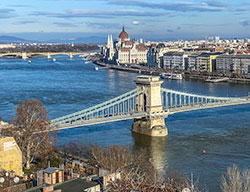
Photo by Nextvoyage / Pexels |
Our adventure begins in Budapest, a city of grandeur and sophistication. Indulge in the beauty of the Hungarian Parliament Building, an architectural masterpiece that dominates the skyline. Take a leisurely stroll along the banks of the Danube River, crossing the iconic Chain Bridge to explore the historic Buda Castle. |
| Don't miss the opportunity to soak in the city's famous thermal baths, such as Széchenyi or Gellért, where you can rejuvenate your body and soul. As the sun sets, embark on a romantic cruise along the Danube, witnessing the illuminated landmarks that make Budapest truly magical. |
Lake Balaton
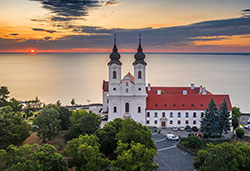
Photo by zgphotography / Adobe Stock | Next, we venture westward to Lake Balaton, a haven of serenity and natural beauty. Relax on the shores of Central Europe's largest freshwater lake and bask in the tranquil atmosphere. Explore lakeside towns Balatonfüred and Keszthely, and discover the region's rich history and savor delicious local cuisine. |
Wine enthusiasts will be delighted by the vineyards dotting the landscape, offering the opportunity to sample renowned Hungarian wines. Embrace the slower pace of life as you embrace the idyllic charm of Lake Balaton.
Eger
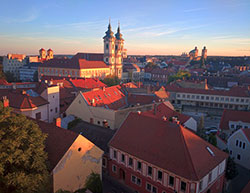
Photo by Adonis Villanueva / Pixabay | Our journey continues to the historical town of Eger, nestled in the picturesque hills of northeastern Hungary. Uncover the secrets of Eger Castle, which defended the town against the Ottoman Empire in a legendary battle. Marvel at the exquisite beauty of the Basilica and wander through the charming streets adorned with Baroque architecture. |
Take time to rejuvenate in the healing thermal baths that have been soothing weary travelers for centuries. Don't forget to indulge in Eger's renowned wines, including the world-famous Bull's Blood, as you explore the region's vineyards and cellars.
Pécs: A Fusion of History and Art

Photo by Anna Spoljar / Unsplash | Heading south, we arrive in Pécs, a city that seamlessly blends history, culture, and a vibrant arts scene. Immerse yourself in the ancient Roman past as you explore well-preserved ruins such as the Early Christian Necropolis, a UNESCO World Heritage site. Admire the beauty of the Pécs Cathedral, a masterpiece of Hungarian architecture. |
Discover the city's vibrant cultural scene through its museums and galleries, showcasing contemporary and traditional artworks. Take leisurely walks through the city's charming streets, and savor the local delicacies at traditional Hungarian eateries.
Szentendre: A Quaint Escape to Artistic Bliss
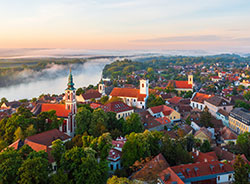
Photo by Janos Illesi / iStock | Our next destination is Szentendre, a town bursting with artistic flair, situated along the picturesque Danube Bend. Lose yourself in the enchanting narrow streets lined with art galleries and craft shops, where you can discover unique treasures to take home. Indulge in the local cuisine at charming cafes, and don't forget to try the delicious Hungarian pastries. |
Immerse yourself in the town's Mediterranean atmosphere as you explore its museums, such as the Open-Air Ethnographic Museum, showcasing traditional Hungarian village life.
Hortobágy National Park: Nature's Untamed Beauty

Photo by Fotohalo / iStock | Our final stop takes us to Hortobágy National Park, a paradise for nature enthusiasts. Explore the vast plains, where herds of cattle and horses roam freely, and witness the traditional Hungarian cowboy culture. Observe diverse bird species in their natural habitats, as the park is a haven for migratory birds. |
Immerse yourself in the breathtaking scenery as you explore the park's unique flora and fauna. Take a horse-drawn carriage ride and embrace the tranquility of this UNESCO World Heritage site.
Hungary, with its diverse array of destinations, offers a perfect blend of history, culture, natural beauty, and relaxation. From the regal charm of Budapest to the serene shores of Lake Balaton, the captivating towns of Eger, Pécs, and Szentendre, and the untamed beauty of Hortobágy National Park, Hungary promises an unforgettable journey. So, pack your bags, embark on this adventure, and let Hungary's timeless allure captivate your heart.
Best Time to Visit:
The best time to visit Hungary largely depends on your preferences and the activities you wish to pursue. Hungary experiences a temperate continental climate with distinct seasons. Considering the overall climate and tourist activities, the shoulder seasons of spring (March to May) and autumn (September to November) are generally considered the best times to visit Hungary. These seasons offer pleasant weather, fewer crowds, and opportunities to experience the country's natural beauty and cultural offerings. However, if you enjoy vibrant summer festivals and don't mind larger crowds, the summer months can also be a fantastic time to visit. Here's a breakdown of the different seasons to help you plan your visit:
Spring (March to May): Spring in Hungary brings mild temperatures, blooming flowers, and budding trees. It's a great time to visit if you prefer pleasant weather and want to avoid crowds. The countryside comes alive with vibrant colors, and outdoor activities such as hiking and exploring nature reserves become popular.
Summer (June to August): Summer is the peak tourist season in Hungary. The weather is warm to hot, with average temperatures ranging from 77°F to 86°F (25°C to 30°C). It's an excellent time to enjoy outdoor festivals, explore the cities, and take part in water activities on Lake Balaton. However, be prepared for larger crowds, especially in popular tourist destinations.
Autumn (September to November): Autumn is a beautiful time to visit Hungary, as the countryside transforms into a picturesque landscape with hues of gold, orange, and red. The weather remains mild and pleasant, making it an ideal time for sightseeing, wine tasting, and exploring the cultural heritage of Hungary.
Winter (December to February): Winter in Hungary is cold, with temperatures often dropping below freezing. If you enjoy winter activities like ice skating and visiting Christmas markets, Budapest comes alive during this season. The thermal baths offer a cozy retreat, and the city's festive atmosphere creates a unique charm. Skiing enthusiasts can also head to the Matra and Bukk Mountains for winter sports.
Travel Planning Tips:
Plan Ahead: Determine how long you plan to stay in Hungary and allocate your time accordingly. Budapest alone can easily fill several days with its numerous attractions, but also consider exploring other regions such as Lake Balaton, Eger, Pécs, and the countryside. Strike a balance between city exploration, cultural experiences, and natural beauty.
Cash and Currency: The official currency in Hungary is the Hungarian Forint (HUF). It's advisable to carry some local currency for smaller establishments or when traveling to rural areas. Credit cards are widely accepted in most places, but it's always good to have some cash on hand. ATMs are readily available throughout the country.
Travel Insurance: Ensure that you have comprehensive travel insurance that covers medical expenses, trip cancellation, and any potential emergencies. Review the policy details and know how to access medical assistance if needed.
Vaccinations: It's highly advisable to check with your doctor if any vaccinations are recommended before traveling to Hungary, as these may vary depending upon the type of exposure you may have such as volunteering or hiking in the woods.
Language: While Hungarian is the official language, many people in tourist areas and larger cities speak English, especially in hotels, restaurants, and attractions. However, it's always helpful to learn a few basic Hungarian phrases or carry a pocket language guide to enhance your interactions with locals.
Local Customs and Etiquette: Familiarize yourself with Hungarian customs and etiquette. Hungarians are known for their hospitality, and it's customary to greet people with a handshake. Tipping is expected in restaurants and for services like taxis, and a 10-15% tip is generally considered appropriate.
Travel Documents: Ensure you have a valid passport with at least six months' validity remaining. Check the entry requirements for Hungary well in advance of your trip. Depending on your nationality, you may need a visa or a valid passport to enter the country.
Remember to check the latest travel advisories and guidelines from your country's government before your trip to Greece, as situations and requirements may change.
Transportation:
Research your desired destinations and their transportation options in advance. Check timetables, ticket prices, and any potential changes or disruptions to ensure smooth travel experiences.
- Domestic Flights: Hungary has several regional airlines that operate within the country and offer connections to neighboring countries. Here are some regional airlines you can consider for domestic and regional flights:
- Public Transportation: Budapest has avariety of transportation options, including buses, trams, the metro, and suburban trains. The Budapest Card offers unlimited travel on public transportation, along with free or discounted entry to many attractions. Consider purchasing a travel card or pass that suits the duration of your stay and your travel needs.
- Budapest Metro: Budapest has four metro lines (M1, M2, M3, and M4) that cover the city's major areas. The metro is an efficient way to get around Budapest quickly. Be sure to validate your ticket at the entrance gates and keep it until you exit the metro system.
- Buses and Trams: Budapest's bus and tram network is extensive, reaching areas not covered by the metro. Tickets can be purchased at kiosks, newsstands, or directly from the driver (exact change may be required). Validate your ticket upon boarding or when entering the tram.
- Taxis: Taxis are widely available in Hungary, especially in Budapest. Make sure to use licensed taxis with a company logo and a visible taximeter. It's advisable to request an estimate of the fare before starting your journey. Uber and other ride-sharing services are also available in Budapest.
- Trains: Hungary has a well-developed railway network connecting major cities and towns. Trains are a convenient option for traveling between different regions. The InterCity (IC) and EuroCity (EC) trains offer faster and more comfortable services, but regular trains are also available at lower prices.
- Regional Transportation: If you plan to explore beyond Budapest, consider using regional buses or trains to reach destinations like Lake Balaton, Eger, Pécs, and other towns. Bus travel is often the most common mode of transportation for regional connections.
- Renting a Car: If you prefer more independence and flexibility, renting a car is an option. Driving in Hungary is generally straightforward, with well-maintained roads and highways. However, keep in mind that parking in city centers can be challenging and costly. Be aware of local traffic rules and regulations.
- Bike Rentals: Budapest and some other cities offer bike-sharing programs and rental services, allowing you to explore the city on two wheels. Look for designated bike lanes and follow traffic rules for cyclists.
- Travel Apps: Utilize travel apps and online resources to navigate Hungary's transportation system effectively. Apps like BKK Futar provide real-time information on public transportation schedules and routes in Budapest.
Safety Tips:
- Safety Precautions:
Hungary is generally a safe country for travelers, but it's always important to exercise common safety precautions. Be mindful of your belongings and avoid displaying valuable items openly. Use secure transportation options, especially at night. Stick to well-lit and populated areas, particularly in urban centers.
- Vaccinations: Check with your healthcare provider or travel clinic about recommended vaccinations before visiting Hungary, such as ensuring you have the latest COVID-19 vaccine before traveling abroad. Consult your healthcare provider or a travel clinic well in advance to receive any necessary vaccinations or medications recommended for Hungary.
- Prescription Medications:If you take prescription medications, ensure you have an ample supply for the duration of your trip. Carry them in their original packaging, along with copies of prescriptions, in case you need to refill or replace them during your trip.
- Water and Food Safety: Tap water in Hungary is generally safe to drink. However, if you prefer, you can consume bottled water, which is widely available. When dining out, choose reputable establishments and ensure that food is properly cooked and served at safe temperatures to minimize the risk of foodborne illnesses.
- Weather Conditions: Be aware of weather conditions, especially if you plan outdoor activities. Hungary experiences a continental climate with cold winters and hot summers. Pack appropriate clothing and accessories based on the season and expected weather conditions.
- Traveling in Rural Areas: If you plan to explore rural areas or engage in outdoor activities, inform someone about your plans and expected return time. Carry necessary supplies, such as maps, navigation tools, appropriate footwear, and protection against insects and wildlife.
- Emergency Services: Familiarize yourself with the local emergency contact numbers in Hungary. The general emergency number is 112, which can be dialed for police, ambulance, or fire services. Save important contact numbers, including your embassy or consulate, in case of any emergencies or need for assistance.
- Travel Advisories Stay updated on current events, local regulations, and any travel advisories when traveling abroad. Visit the US Government State Department Travel Advisories web site to check on the status of your destination.
- Enroll in the STEP Program: Travelers are also urged to enroll in the U.S. State Department's Smart Traveler Enrollment Program (STEP) to receive security messages and to make it easier to locate them in an emergency. The Department uses these security messages to convey information about terrorist threats, security incidents, planned demonstrations, natural disasters, etc. In an emergency, please contact the nearest U.S. Embassy or consulate or call the following numbers: 1 (888) 407-4747 (toll-free in the United States and Canada) or 1 (202) 501-4444 from other countries.
| |
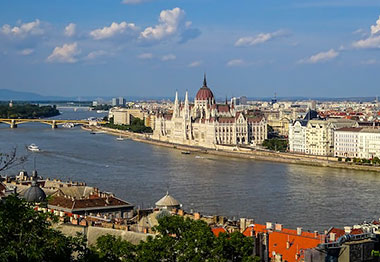 Photo by Nico
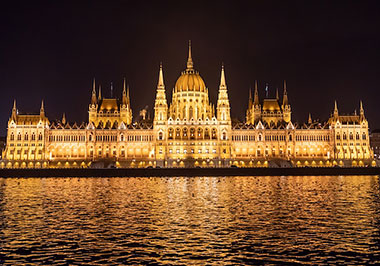 Photo by Kirandeep Singh Walia
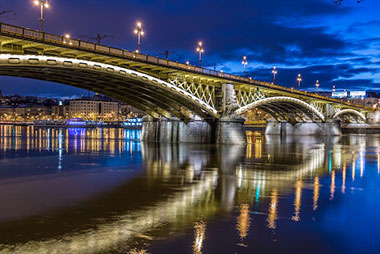 Photo by Gáspár Ferenc
|
 Photo by Nico
Photo by Nico  Photo by Kirandeep Singh Walia
Photo by Kirandeep Singh Walia
 Photo by Gáspár Ferenc
Photo by Gáspár Ferenc